At HeptaCare Health, we are committed to providing top-quality surgical care for femoral hernias with precision, safety, and patient comfort as our top priorities. Our team of highly skilled surgeons specializes in both laparoscopic and open hernia repair, ensuring fast recovery, minimal discomfort, and excellent results.
With state-of-the-art facilities and personalized patient care, we have helped countless individuals regain their health and confidence. Whether you need diagnosis, surgery, or post-operative care, we are here to guide you through every step of the process.
Happy Patients
Disease
Hospitals
Cities
A femoral hernia occurs when tissue pushes through a weak spot in the lower abdominal wall near the groin.
It often appears as a bulge in the upper thigh or groin area and can cause discomfort or pain.
Femoral hernias are more common in women and may worsen with activities like lifting or straining.
If left untreated, they can lead to serious complications such as bowel obstruction or strangulation.

Femoral hernias typically present as a groin lump or bulge, which may differ in size during the day, based on internal pressure variations of the intestine. This lump is typically round-shaped. The bulge or lump generally is smaller or may disappear completely in the prone position.
They may or may not be associated with pain. Often, they present with a varying degree of complication, ranging from irreducibility through intestinal obstruction to frank gangrene of contained bowel. The incidence of strangulation in femoral hernias is high. A femoral hernia has often been found to be the cause of unexplained small bowel obstruction.
The cough impulse is often absent and is not relied on solely when diagnosing femoral hernia. The lump is more globular than the pear-shaped lump of the inguinal hernia. The bulk of a femoral hernia lies below an imaginary line drawn between the anterior superior iliac spine and the pubic tubercle (which essentially represents the inguinal ligament) whereas an inguinal hernia starts above this line. Nonetheless, it is often impossible to distinguish the two preoperatively.
A femoral hernia is a less common type of hernia, but it can lead to serious complications if left untreated. At Heptacare Health, we help you understand the signs early — because early detection leads to quicker, safer recovery.
Visible bulge in the upper thigh or groin — especially below the crease where your leg meets your body.
Pain or discomfort while standing, coughing, or lifting.
Pressure or aching in the groin area.
Sudden nausea or vomiting in severe cases — this can signal a strangulated hernia (a surgical emergency).
Changes in bowel habits like constipation or bloating.
If you notice any swelling or persistent pain in your groin or upper thigh, consult Heptacare Health immediately. Femoral hernias often require minimally invasive surgery to prevent complications.
At Heptacare Health, your well-being is our top priority. When it comes to femoral hernias, timely treatment is essential. Unlike some hernias that can be monitored, femoral hernias typically require prompt surgical repair due to their higher risk of complications.
A femoral hernia occurs when tissue pushes through a weak spot near the groin. If left untreated, this can lead to serious problems such as:
Bowel Obstruction: The intestine can get trapped, causing severe pain, nausea, and vomiting, along with a painful lump in the groin.
Strangulation: A life-threatening condition where blood flow is cut off to part of the bowel. This requires emergency surgery within hours to prevent tissue death.
Surgical intervention not only resolves the hernia but also prevents these dangerous complications.

At Heptacare Health, our experienced surgical team offers two advanced treatment options:
A single incision is made to push the hernia back in place and strengthen the abdominal wall.
A minimally invasive method involving a few small cuts, allowing for quicker recovery and less post-op discomfort.
🩺 Your surgeon will recommend the best approach based on your health, lifestyle, and the specifics of your hernia.
Most patients at Heptacare Health are able to return home the same day or the next. Recovery is usually smooth, and we guide you every step of the way.
✅ Follow our post-surgery instructions carefully:
1. Add fiber-rich foods like fruits, vegetables, and whole grains to your meals — they help prevent constipation and ease abdominal pressure.
2. Make sure the wound stays clean and dry at all times to avoid infection and promote proper healing.
3.Avoid lifting heavy objects or straining too soon — your body needs rest to recover safely and fully.
🔁 Recovery Timeline:
• Light activity: Within 2 weeks
• Full recovery: Around 6 weeks


Based on 7721 Recommendations | Rated 4.68 Out of 5
Happy Patients
Clinics
Cities
Surgeries
Doctors
Hospitals

Protrusion of internal organs into abdominal muscle wall …

Heal painful anal fissures with advanced, non-surgical care.
Quick relief, minimal downtime, expert proctology support…

Treat anal fistula with safe, advanced procedures.
Minimally invasive care with faster recovery.

Get permanent relief from pilonidal sinus with laser surgery.
Painless procedure, quick healing, same-day discharge.

Advanced treatment for rectal prolapse by expert surgeons.
Safe procedure, minimal pain, long-term relief.
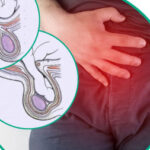
Advanced treatment for rectal prolapse by expert surgeons.
Safe procedure, minimal pain, long-term relief.
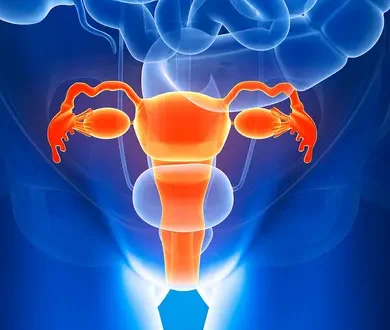
Get permanent relief from pilonidal sinus with laser surgery.
Painless procedure, quick healing, same-day discharge.
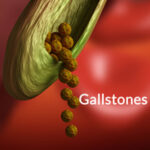
Advanced treatment for rectal prolapse by expert surgeons.
Safe procedure, minimal pain, long-term relief.
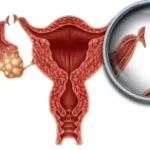
Advanced treatment for rectal prolapse by expert surgeons.
Safe procedure, minimal pain, long-term relief.
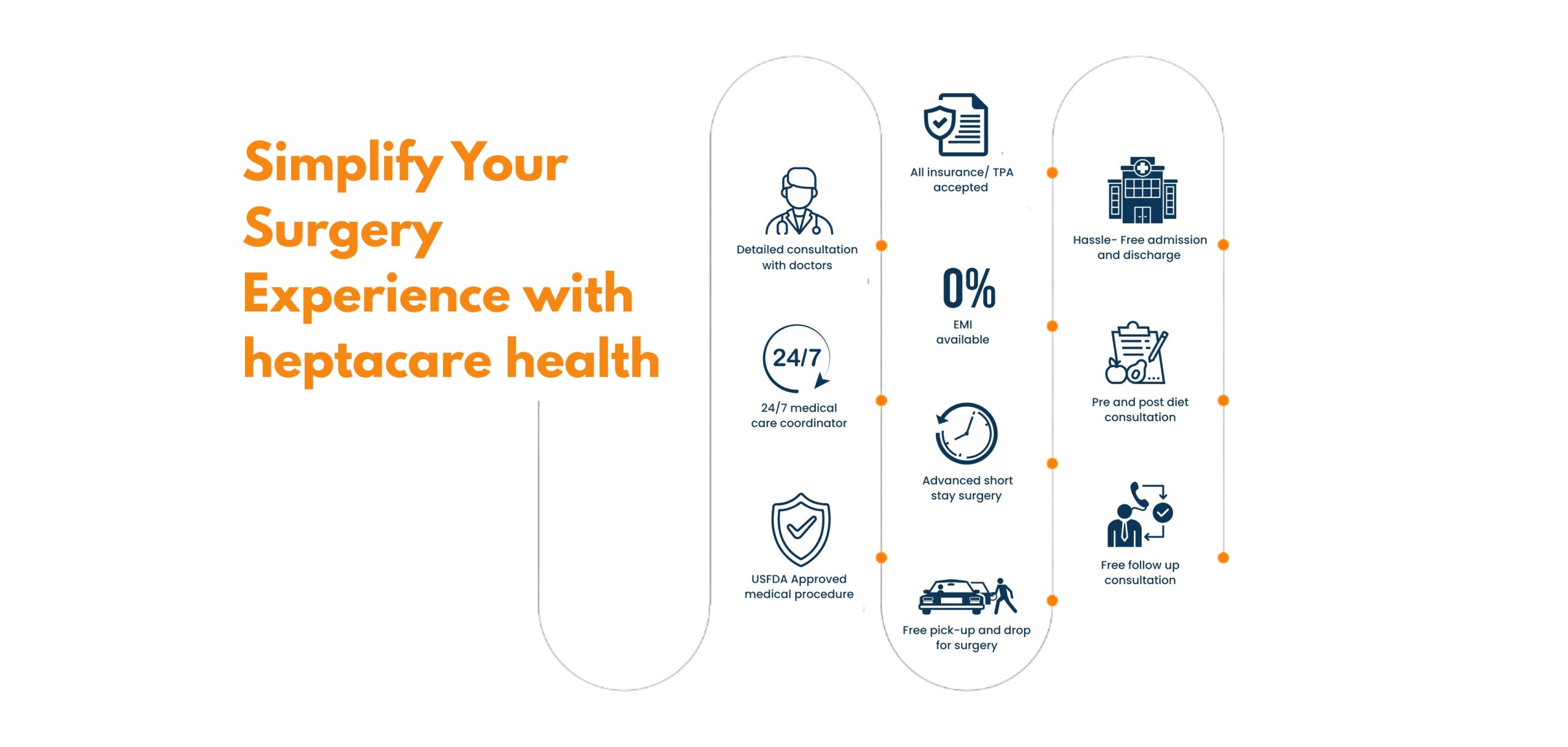
Most patients feel only mild pain or bloating for 1–2 days, which is well managed with medicines. Compared to open surgery, laparoscopy has much less pain and scarring.
Delaying treatment can make the hernia bigger, more painful, and risk serious complications such as obstruction or strangulation, which can be life-threatening.
Most hernia surgeries take 30–60 minutes. In many cases, patients can go home the same day (day-care surgery).
Yes, light walking is encouraged the same day or next day. It helps recovery and prevents complications.
● femoral hernia surgery cost in Vizag ● low-cost femoral hernia surgery in Hyderabad ● cashless femoral hernia treatment near me ● painless femoral hernia surgery in Vijayawada ● femoral hernia treatment with insurance in Vizag ● femoral hernia operation cost in Hyderabad ● femoral hernia surgery packages in Vijayawada ● affordable femoral hernia treatment near me ● femoral hernia laser treatment clinic in Hyderabad ● femoral hernia doctor consultation charges in Vizag ● best femoral hernia surgery cost in Vijayawada ● femoral hernia treatment hospital near me ● femoral hernia operation price in Hyderabad ● low-cost femoral hernia laser treatment in Vizag ● femoral hernia removal cost near me ● femoral hernia treatment with EMI in Vijayawada ● femoral hernia surgery specialist near me ● femoral hernia surgery packages in Hyderabad ● femoral hernia treatment clinic near me ● femoral hernia surgery near me
Disclaimer: **The result and experience may vary from patient to patient.. ***By submitting the form or calling, you agree to receive important updates and marketing communications.
Getting an accurate diagnosis can be one of the most impactful experiences that you can have.

cure with care
Copyright © 2025. All rights reserved.
Consult with our expert surgeon for more than 50+ diseases
Happy Patients
Hospitals
Cities